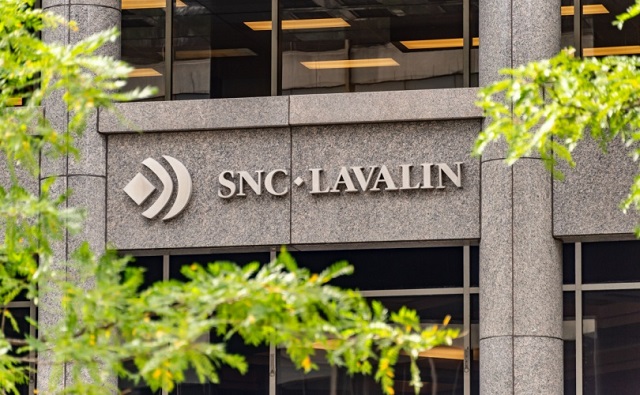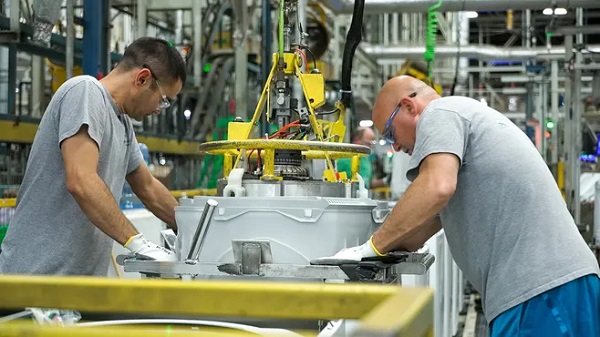Taxpayers
Police admit Canadian bribery scandal was nixed without talking to Trudeau, reviewing records

From LifeSiteNews
The Royal Canadian Mounted Police believed there was political pressure to dismiss a government bribery case against engineering firm SNC-Lavalin in 2019 but claimed there was insufficient evidence to proceed.
The Royal Canadian Mounted Police (RCMP) confirmed that it never talked with Prime Minister Justin Trudeau or was able to view secret cabinet records before dismissing charges in a bribery scandal involving the large engineering firm SNC-Lavalin.
The RCMP’s admission came after intense questioning before the House of Commons ethics committee late last month.
As per Blacklock’s Reporter, RCMP commissioner Michael Duheme testified, “No one is above the law,” adding that there was “insufficient evidence to proceed” with the investigation.
In a 2021 memo titled RCMP Assessment Report: Obstruction of Justice SNC-Lavalin Affair obtained from Access to Information requests last October by Democracy Watch, the RCMP noted that it did not doubt there was indeed political pressure to stop criminal prosecution of SNC-Lavalin.
“However, for it to be an offence under the Criminal Code, there must be more than a technical violation,” the 2021 memo read.
During the House of Commons ethics committee meeting in February, Duheme said he had considered the SNC-Lavalin case routine, noting, “We approach every investigation in the same manner.”
Staff Sergeant Frédéric Pincince, who serves as a director of investigations, admitted that the RCMP never questioned Trudeau in the SNC-Lavalin case but gave no reason.
“He was not interviewed,” testified Pincince, to which Conservative MP Larry Brock asked, “Was there at least an attempt to interview Justin Trudeau?”
“No,” Pincince replied.
SNC-Lavalin, which now goes by the name “AtkinsRéalis,” in 2019 pleaded guilty to fraud in a Québec Provincial Court and was hit with a $280 million fine. Company executives also admitted that they had paid $47.7 million in bribes to get contracts in Libya.
In October 2023, Canadian Liberal MPs on the ethics committee voted to stop the RCMP from testifying about the SNC-Lavalin bribery scandal.
In June 2023, LifeSiteNews reported that the RCMP denied it was looking into whether Trudeau and his cabinet committed obstruction of justice concerning the SNC-Lavalin bribery scandal.
SNC-Lavalin was faced with changes of corruption and fraud concerning about $48 million in payments made to Libyan government officials between 2001 and 2011. The company had hoped to be spared a trial and prosecution deferred prosecution agreement.
However, then-Attorney General Jody Wilson-Raybould did not go along with Trudeau’s plan, which would have allegedly appeared to help SNC-Lavalin. In 2019, she contended that both Trudeau and his top Liberal officials had inappropriately applied pressure on her for four months to directly intervene in the criminal prosecution of Montreal-based global engineering firm SNC-Lavalin relating to its scandal involving corruption and bribery charges connected to government contracts it once had in Libya.
Commissioner mum on whether there was ‘reluctance’ to charge a sitting PM
During the ethics committee meeting, Brock asked Duheme if there was an “overall general reluctance in charging a sitting Prime Minister?”
“I would say to that, we follow the evidence and if the evidence warrants charges, we charge,” Duheme replied.
Brock then asked if the RCMP obtained “all relevant documents to further the investigation?”
Duheme admitted that “we were limited with the information that we had access to.”
Brock pressed him, asking, “Is that a yes or no, sir?” to which Duheme replied, “I don’t know,” adding, “We didn’t know.”
“We don’t know, we still don’t know to this day all the information that is out there,” Duheme responded.
Brock then pressed Duheme, asking why the RCMP did not “exercise its absolute statutory right under the Criminal Code to obtain a production order or search warrant from a justice to obtain those cabinet documents?”
Duheme said the RCMP were not “able to obtain enough information or evidence.”
As for the initial investigation concerning SNC-Lavalin, Wilson-Raybould testified in early 2019 to Canada’s justice committee that she believed she was moved from her then-justice cabinet posting to veterans’ affairs due to the fact she did not grant a request from SNC-Lavalin for a deferred prosecution agreement rather than a criminal trial.
Of note is that a criminal conviction would have banned the company from landing any government contracts for 10 years.
Trudeau flat-out denied it was being investigated by the RCMP.
Less than four years ago, Trudeau was found to have broken the federal ethics laws, or Section 9 of the Conflict of Interest Act, for his role in pressuring Wilson-Raybould.
On February 12, 2019, Wilson-Raybould resigned from her veterans’ affairs post and Treasury Board president Jane Philpott quit in March 2019. They both cited a lack of confidence in the Liberal government’s handling of the scandal.
Then, in April 2019, Trudeau turfed Wilson-Raybould and Philpott from his caucus, meaning they were no longer part of the Liberal Party.
Business
Federal fiscal anchor gives appearance of prudence, fails to back it up

From the Fraser Institute
By Jake Fuss and Grady Munro
The Parliamentary Budget Officer (PBO)—which acts as the federal fiscal watchdog—released a new report highlighting concerns with the Carney government’s fiscal plan. Key among these concerns is the fact that the government’s promise to balance its “operating budget” does not actually ensure the nation’s finances are sustainable. Instead, the plan to balance the operating budget by 2028/29 gives the appearance of fiscal prudence, but allows the government to continue running large deficits and borrow more money.
First, what’s the new government’s fiscal plan?
While the Carney government has chosen to delay releasing a budget until the fall—leaving Canadians and parliamentarians in the dark about the state of government finances and where we’re headed—the Liberal platform and throne speech lay out the plan in broad strokes.
The Carney government plans to introduce a new framework that splits federal spending into two separate budgets: The operating budget and the capital budget. The operating budget will include “day-to-day” spending (e.g. government salaries, cash transfers to provinces and individuals, etc.) while the capital budget will include spending on “anything that builds an asset.” Within this framework, the government has set itself an objective—also called a ‘fiscal anchor’—to balance the operating budget over the next three years.
Fiscal anchors help guide policy on government spending, taxes and borrowing, and are intended to prevent government finances from deteriorating while ensuring that debt is sustainable for future generations. The previous federal government made a habit of violating its own fiscal anchors—to the detriment of national finances—but the Carney government has promised a “very different approach” to fiscal policy.
The PBO’s new report highlights two critical concerns with this new approach to finances. First, the federal government has not yet defined what “operating” spending is and what “capital” spending is. Therefore, it’s difficult to know whether any new spending policies—such as the recently announced increase in defence spending—will hurt efforts to achieve the government’s goal of balancing the operating budget and how much overall debt will be accumulated. In other words, the government’s plan to split the budget in two simply muddies the waters and makes it harder to evaluate federal finances.
The PBO’s second, and more alarming, concern is that even if the government achieves its goal to balance the operating budget, federal finances may still continue to deteriorate and debt may rise at an unsustainable rate (growing faster than the economy).
While the Liberal election platform does outline a fiscal path that appears to balance the operating budget by 2028/29, this path also includes higher deficits and more borrowing than the previous government’s plan once you factor in capital spending. Specifically, the Carney government plans to run overall deficits over the next four years that are a combined $93.4 billion more than was previously planned in last year’s fall economic statement. This means that rather than the “very different approach” that Canadians have been promised, the Carney government may continue (or even worsen) the same costly habits of endless borrowing and rising debt.
The PBO is right to call out the major transparency issues with the Carney government’s new budget framework and fiscal anchor. While the devil will be in the details of the government’s fiscal plan, and we won’t know those details until it releases a budget, the government’s new fiscal anchor gives the appearance of prudence without the substance to back it up.
Business
TRUMP TARIFFS: GE Appliances brings washer manufacturing back from China

Quick Hit:
GE Appliances is reshoring its washer manufacturing operation from China to Louisville, Kentucky in a $490 million move expected to create at least 800 new jobs.
Key Details:
- The company will relocate production of more than 15 washer models to its sprawling Appliance Park campus in Louisville, where it already builds top-load washers and dryers.
- GE Appliances expects to hire at least 800 full-time employees as part of the expansion, which will add the equivalent of 33 football fields of production space.
- CEO Kevin Nolan said the move aligns with the “current economic and policy environment” and reflects a broader strategy to “make appliances as close as possible to our customers.”
Diving Deeper:
GE Appliances announced Thursday it will move most of its washer production out of China and bring it home to the U.S., investing nearly half a billion dollars in expanding its Appliance Park operations in Louisville, Kentucky. The strategic reshoring decision comes as U.S. policy increasingly favors domestic manufacturing and as companies respond to shifting global supply chain realities.
“With this investment, we are bringing laundry production to our global headquarters in Louisville because manufacturing in the U.S. is fundamental to our ‘zero-distance’ business strategy,” said GE Appliances President and CEO Kevin Nolan. “This decision is our most recent product reshoring and aligns with the current economic and policy environment.”
The $490 million investment will focus on Building 2 at Appliance Park, where more than 15 new washer models will be assembled, significantly boosting the company’s clothes care footprint. The added capacity brings GE’s total laundry production space at the Kentucky facility to the size of 33 football fields.
“This move puts our production closer to our designers, engineers and consumers so we can build our most innovative laundry platforms right here in the U.S.,” said Lee Lagomarcino, vice president of clothes care at GE Appliances.
Kentucky Governor Andy Beshear applauded the decision, calling it a major boost for the state’s manufacturing base. “This investment strengthens one of our vital Kentucky assets and underscores our state’s reputation as America’s destination of choice for advanced manufacturing and job creation,” Beshear said.
The reshoring announcement follows a broader trend under President Donald Trump’s economic agenda, which includes imposing tariffs to incentivize companies to relocate production back to American soil.
Appliance Park currently employs roughly 8,000 workers and has been the centerpiece of the company’s U.S. operations. Over the last 10 years, GE Appliances has invested $3.5 billion into domestic manufacturing, with facilities in multiple states. The company says the washer production shift to Kentucky will be completed by 2027.
-

 COVID-1911 hours ago
COVID-1911 hours agoOntario man launches new challenge against province’s latest attempt to ban free expression on roadside billboards
-

 Energy19 hours ago
Energy19 hours agoThis Canada Day, Celebrate Energy Renewal
-

 Business2 days ago
Business2 days agoWhile China Hacks Canada, B.C. Sends Them a Billion-Dollar Ship Building Contract
-

 Alberta1 day ago
Alberta1 day agoSo Alberta, what’s next?
-

 Alberta10 hours ago
Alberta10 hours agoAlberta Next Takes A Look At Alberta Provincial Police Force
-

 Bjorn Lomborg2 days ago
Bjorn Lomborg2 days agoThe Physics Behind The Spanish Blackout
-

 Alberta12 hours ago
Alberta12 hours agoCanadian Oil Sands Production Expected to Reach All-time Highs this Year Despite Lower Oil Prices
-

 Business14 hours ago
Business14 hours agoPotential For Abuse Embedded In Bill C-5




